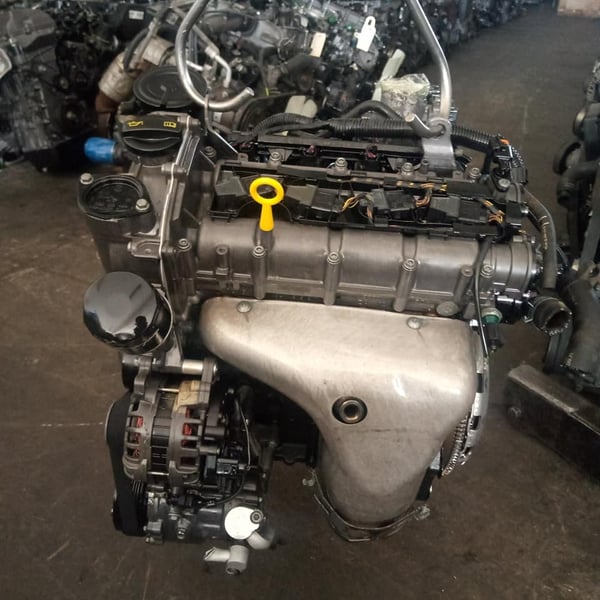Choose a powerful clp engine for demanding tasks.
Choose a powerful clp engine for demanding tasks.
Blog Article
Just How a Clp Engine Can Enhance Efficiency in Various Industries
The advent of CLP engines notes a considerable change in operational effectiveness across numerous fields, driven by their ability to enhance gas intake and decrease downtime. As organizations increasingly prioritize sustainability together with performance, the duty of CLP engines comes to be also more vital.
Introduction of CLP Engines
CLP engines, or Constant Liquid Propellant engines, represent a substantial innovation in propulsion modern technology, especially for area applications. These engines utilize a continual feed system that permits for the continual expulsion of propellant, resulting in enhanced performance and efficiency compared to traditional strong or hybrid propulsion systems. By preserving a constant circulation of fluid propellant, CLP engines can attain a lot more accurate drive control, which is critical for steering spacecraft in various objective situations.
The style of CLP engines integrates innovative materials and ingenious fuel monitoring systems. clp engine. This leads to reduced weight and boosted reliability, essential aspects for long-duration space goals. Additionally, the continual operation decreases the danger of burning instability, a typical obstacle in conventional rocket engines.

Benefits in Manufacturing
The production of Continual Fluid Propellant (CLP) engines offers a number of significant advantages that improve both effectiveness and cost-effectiveness. One of the main benefits is the streamlined manufacturing procedure, which lowers the intricacy linked with standard propulsion systems. By using liquid propellant, manufacturers can achieve better accuracy in engine performance, resulting in optimized power result and minimized waste.
Furthermore, CLP engines assist in a higher degree of modularity, enabling easier integration right into different manufacturing lines. This adaptability can significantly decrease preparations and boost general operational adaptability. Making use of CLP innovation also has a tendency to reduce the need for considerable upkeep due to less moving components, which converts into lowered downtime and operational prices.

Applications in Logistics
Leveraging Constant Fluid Propellant (CLP) engines in logistics provides considerable benefits in operational performance and integrity. These engines provide a robust option for different transportation demands, enabling the smooth activity of goods throughout large ranges. The intrinsic style of CLP engines permits for constant power outcome, which translates into smoother and much more foreseeable transport timetables.
Among the crucial applications of CLP engines in logistics is in heavy-duty freight transportation, where they can drive both ground and airborne automobiles. Their capability to maintain high efficiency under differing tons conditions ensures that delivery timelines are fulfilled, consequently improving customer satisfaction. In addition, CLP engines can be incorporated into automated logistics systems, facilitating real-time monitoring and enhancing route preparation.
Additionally, the toughness of CLP engines minimizes upkeep downtime, enabling logistics companies to optimize their operational capacities. This is specifically useful in warehousing operations, where performance in dealing with and transporting items is vital. As logistics remains to progress, the integration of CLP engines stands for a forward-thinking approach that not just improves efficiency but additionally browse around here supports the market's growing demands for reliability and speed.
Influence On Energy Performance
How do Constant Fluid Propellant (CLP) engines improve power efficiency in transport? CLP engines make use of a consistent circulation of fluid fuel, enhancing burning processes and keeping a stable thrust result. This design lessens power losses associated with typical combustion engines, where fuel shipment can differ and result in ineffectiveness.
The continuous operation of CLP engines enables for an extra effective thermal cycle, leading to greater specific impulse contrasted to standard engines. clp engine. This translates to minimized gas intake for the same amount of work done, dramatically decreasing operational expenses throughout various transportation fields, including air travel and maritime sectors
Moreover, the capability of CLP engines to keep optimum performance under varying tons problems minimizes the demand for frequent acceleration and deceleration, additionally boosting gas performance. Improved energy effectiveness not only adds to set you back savings but also results in lower greenhouse gas discharges, straightening with international sustainability objectives.
Future Trends and Innovations
Arising advancements in Continuous Fluid Propellant (CLP) engine technology guarantee to transform the landscape of transportation effectiveness click to investigate and sustainability. As sectors pivot toward greener alternatives, CLP engines stand at the forefront, integrating ingenious materials and design methodologies that boost performance while reducing environmental influence.
Among the most appealing fads is the fostering of hybrid systems that integrate CLP engines with renewable resource resources. This harmony can optimize gas usage and reduce exhausts, lining up with worldwide sustainability objectives. In addition, improvements in computational fluid characteristics (CFD) are promoting the style of more look at this website aerodynamically effective engines, resulting in reduced drag and boosted fuel performance.
Furthermore, the growth of smart surveillance systems is set to boost operational efficiencies. These systems utilize information analytics and IoT technology to maximize engine efficiency in real-time, ensuring that the engines run within their most efficient criteria.
As research study continues to discover alternative propellant solutions-- such as biofuels and synthetic gas-- the future of CLP engines looks promising. By using these developments, sectors can not only boost their efficiency however additionally contribute substantially to a cleaner, more sustainable future in transport.
Conclusion
In conclusion, CLP engines represent a significant advancement in efficiency across multiple industries. The integration of sophisticated products and less relocating components decreases upkeep demands, while positioning with sustainability goals positions CLP engines as a critical innovation for the future.
Report this page